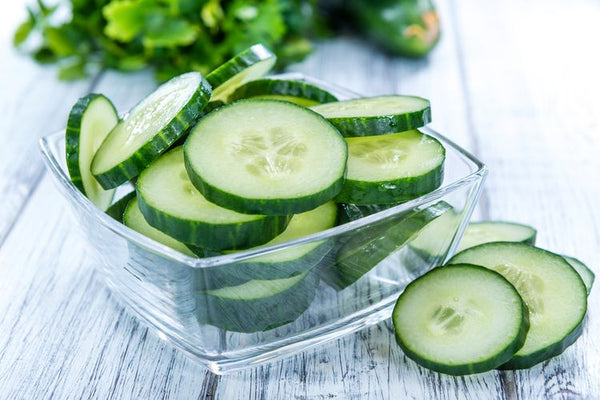
Vitamin A For Acne: Benefits and How To Use

Vitamin A is an important nutrient that plays a role in cell growth. This vitamin has several special benefits for the skin, including treating acne. Here's vitamin A for acne!
There are two types of vitamin A to be aware of: carotenoid compounds from plant products and retinoids from animals.
Retinoids are considered capable of treating acne problems because they have antioxidant and anti-inflammatory properties that can maintain and improve skin health.
In this article, we discuss how we can utilise vitamin A for acne and the steps to treat it.
Can vitamin A Cure Acne?
Vitamin A helps improve organ function in the body, helps cells grow and stay healthy. Most of the body's cells need it to run properly.
Vitamin A acts as an antioxidant, protecting cells from free radical damage. In skin cells, it can help slow down cell aging and keep skin looking younger.
The same process can also reduce the speed at which skin cells' exfoliate, potentially reducing clogged pores and acne.
Research in the Journal of the American Academy of Dermatology shows that isotretinoin — which is available under the brand name Accutane, among others — can treat acne that is at its most severe.

Isotretinoin is a type of retinoid. This type can also help acne sufferers who are resistant to other types of treatment.
However, anyone undergoes retinoid treatment needs regular testing to reduce the risk of problems that can develop in the liver.
The reason is, vitamin A easily binds to fat cells, and can accumulate in the body causing it to become toxic.
Vitamin A can also help skin cells directly if applied topically or applied topically. Topical treatment of retinoids can reduce bacteria on the skin and help with inflammation.
This type of drug can affect the sensitivity of the skin to the sun's UV rays. This sensitivity can increase the risk of sunburn, so people should be careful not to expose their skin to the scorching rays of the sun.
Acne scars
Retinoids can also help remove scars from acne.
There is some evidence that retinoids can reduce the appearance of acne scars on the face. A study in Dermatology and Therapy found that retinoid treatments improved the appearance of acne scars after 24 weeks.
Vitamin A is not a quick fix for scar tissue or, but it can help repair damaged cells that cause scarring over time.
Forms of vitamin A for Acne
You can try different forms of vitamin A to improve acne:
Topical vitamin A
Topical retinoids are available over the counter (OTC). Many skin products, including anti-aging creams and acne treatments, contain retinoids.
More concentrated OTC retinoid creams are also available in the market. Type II usually contains retinoids and other ingredients, such as glycerin.
People who use retinoid products for the first time should still pay attention to their intake according to the rules of drinking, or in the advice of herbalists/doctors.
Because, if not, it's likely to have side effects from retinoids.
A doctor may prescribe a topical retinoid, such as:
- tretinoin
- tazarotene
- Adapalene
Oral Vitamin A
Oral vitamin A supplements allow the body to deliver vitamin A to the cells that need this type of vitamin the most.
Many multivitamins contain vitamin A, but supplements that focus solely on vitamin A are also available. It is usually present in the form of retinyl palmitate or retinyl acetate.
Other forms of vitamin A such as retinoids may require prescription strength, including acitretin (Soriatane) and bexarotene (Targretin), as well as isotretinoin.
Food vitamin A for Acne

Through diet, we can also receive vitamin A intake, with plant and animal foods providing various types.
Foods rich in vitamin A include:
- Oily fish, such as herring and salmon
- Beef liver
- Dairy products
- Egg
- Yellow, red and orange plant-based beta-carotene foods, such as sweet potatoes, carrots, and pumpkin
- Green plant foods, such as broccoli, spinach, and radishes
- Many cereal manufacturers include many vitamins in it, including vitamin A.
How to use vitamin A for Acne
Anyone considering using vitamin A as an acne medication should first consult their doctor.
Adding foods rich in vitamin A to your diet is generally safe, but treating acne using oral and topical types of vitamin A has its own risks.
Side effects may occur with oral and topical vitamin A. In some cases, taking too much vitamin A causes a build-up of toxins in the liver.
Dietary intake and vitamin A supplements for acne
Vitamin A deficiency is rare in many countries, including Australia. People who have a balanced and varied diet generally do not need to focus on certain vitamins and minerals.
However, those who want to increase their vitamin A levels can eat foods rich in this nutrient, such as liver, oily fish, and green leafy vegetables.
The NIH states that the recommended daily intake of vitamin A is:
- 700 micrograms (mcg) of retinol activity equivalent (RAE) for women over the age of 14
- 900 mcg RAE for men over 14 years old
- 600 mcg RAE for children between 9 and 13 years old
Oral Vitamin A
You should only take oral retinoids for acne under the guidance of a medical doctor. Oral retinoids are usually for severe or difficult-to-treat cases of acne.
In this case, the doctor will give specific instructions on how to use the drug. They will also follow up with regular testing to help monitor side effects and avoid complications.
Topical Vitamin A
Anyone considering a topical retinoid treatment for acne should talk to their doctor or dermatologist first.
Your doctor may recommend other drugs or certain products.
OTC options also have lower concentrations of retinoids, making them less likely to cause severe side effects.
After applying a retinoid to your face, it's important to stay out of the sun if possible. You can stay in the shade and wear protective clothing to reduce sun exposure.






